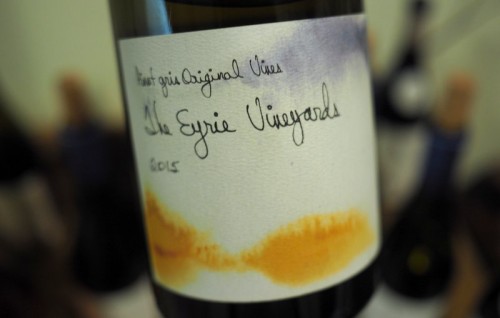
There is the wine, and there is the experience of the wine.
As writers and critics, when we assess wine, we try to do something unusual. We separate the two, and we try to assess the wine independently of all the things that go on around the wine, and for most people help create the experience of drinking. We try to get to the essence of the wine, and this usually involves stepping back, retracing our steps, and trying to strip away the extraneous factors, and even our own internal state, or knowledge, or expectations, or even preferences. The closer we get to the wine – even to the point of trying it blind – then the more generalizable our note will be. Of course, we fail: we are not measuring devices. But we hope to fail as little as possible, to get as close to the wine we can. Experience helps here.
Then there’s the experience of the wine, which is what it is all about. If you have a bottle of wine to share with a friend, then there’s a lot you can do to enhance the experience of the wine. First, you can drink it in a nice setting. A favourite place; somewhere pretty; a fancy restaurant perhaps. [Of course, it helps to choose a good friend who is nice and in a good mood – but I thought this was obvious.] You will try to serve the wine at the right temperature, and you will want to use nice glasses (Zalto or Gabrielglass, please!) – you might decant the wine. You will know a bit about what you are drinking – knowledge helps enjoyment much of the time. You may choose to serve the wine with nice food. These things all elevate the experience of wine, and when I drink, I’m interested in the experience, which is different to the wine.
We tend to forget this. Critics don’t rate experiences, but people are enjoying experiences. So a highly rated wine is not necessarily a guarantee of a good experience. If you’ve just found out your significant other is cheating on you, then even the finest wine will taste somewhat sour. And one thing that I see seldom mentioned is that when people talk about tasting wine in aeroplanes, the experience is diminished because of the low pressure, the dry air and the ambient noise. But sometimes I think wine tastes better in the air: if you rarely fly business class but by chance find yourself in the front of the plane, the taste of the relatively modest Champagne you get as you take your seat is amplified by the occasion. You are going somewhere in a plane, and you are in business class, not at the back.
It’s important for me to be able to try to get as close to the wine is possible. But that’s not what we do when we drink. There is the experience of the wine, and this is what counts.
3 Comments on Separating out the wine and the experience of the wine


A nice piece………but the trade names of glasses jarred. Completely unnecessary information in the context of your interesting observations……..unless you are sponsored by them, which seems less than likely given your previous declarations.
Good post. This must be why those “holiday finds” rarely seem to taste as good in the cold light of day back at home nor in a sensory lab.
Sorry for the jarring mentions. Not sponsored, as you’d guessed